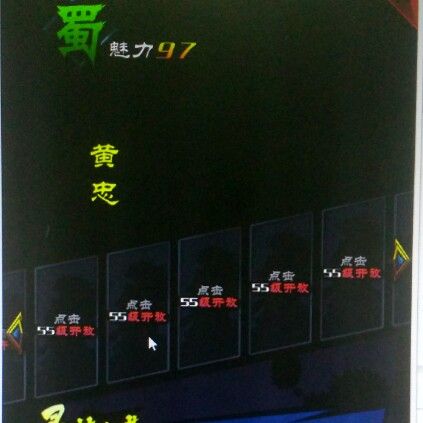- 【心灵鸡汤】深度学习技能形成树:从零基础到AI专家的成长路径全解析
智算菩萨
人工智能深度学习
引言:技能树的生长哲学在这个人工智能浪潮汹涌的时代,深度学习犹如一棵参天大树,其根系深深扎入数学与计算科学的沃土,主干挺拔地承载着机器学习的核心理念,而枝叶则繁茂地延伸至计算机视觉、自然语言处理、强化学习等各个应用领域。对于初入此领域的新手而言,理解这棵技能树的生长规律,掌握其形成过程中的关键节点和发展阶段,将直接决定其在人工智能道路上能够走多远、攀多高。技能树的概念源于游戏设计,但在学习深度学习
- Python——pyautogui打地鼠游戏自动化脚本(基于图片定位)
以4399小游戏为例:4399游戏网importpyautoguiimportkeyboardimporttimeimportrandomimportloggingfromPILimportImageGrabimportos#配置日志logging.basicConfig(level=logging.INFO,format='%(asctime)s-%(levelname)s-%(message)
- RTX 30、40、50 系列显卡全面对比:谁才是你的最佳选择?
小李也疯狂
其他人工智能显卡
目录前言一、架构设计:不断进化的核心驱动力1.1RTX30系列(Ampere架构)1.2RTX40系列(AdaLovelace架构)1.3RTX50系列(Blackwell架构,假设信息,实际可能不同)二、性能表现:数字背后的实力较量2.1游戏性能1080P分辨率2K分辨率4K分辨率2.2创作性能视频编辑3D建模与渲染三、功能特性:前沿科技的魅力呈现3.1DLSS技术对比3.2光线追踪性能3.3编
- 2019年架构师系列教程:高并发Netty实战打造百万连接架构
不教书的塞涅卡
本文还有配套的精品资源,点击获取简介:本课程面向高级IT专业人士,旨在教授如何利用Netty框架设计和实现能够处理高并发连接的服务器架构。Netty是一个高性能、异步事件驱动的Java网络应用程序框架。课程将提升学员在系统架构设计和性能优化方面的技能,应对高并发场景挑战,特别是在金融、游戏、物联网等领域。1.Netty框架基础概念介绍Netty是一个高性能的网络应用框架,专为快速开发可维护的高性能
- java 定时器需要守护线程,守护线程什么时候有用?
weixin_39956353
java定时器需要守护线程
当所有正在运行的线程都是守护进程线程时,JVM将退出。所以想象你正在写一个简单的游戏,你的主要方法循环,直到你决定退出。想象一下,在游戏开始的时候,你会开始一个无休止地轮询一些网站来触发警报的线程。当您决定结束游戏时,您希望JVM退出。你不希望无尽的投票,以防止游戏结束。所以你让这个轮询线程成为一个守护线程。当所有“正常”线程终止时,Deamon线程将被JVM自动终止。普通线程永远不会自动终止。您
- 游戏引擎中顶点着色&像素着色
霸王奉先
游戏开发基础理论游戏引擎顶点着色器像素着色器顶点颜色顶点UV顶点法向
一.GPU渲染管线GPU在接收到游戏端提交的Mesh,Shader数据后,渲染管线开始工作,将数据进行处理投射为2D屏幕中光栅图像.GPU硬件中着色单元有两类,分别为顶点着色器和像素着色器.二.顶点着色器完成Mesh网格中顶点(3D)到屏幕(2D)计算vertex_fvf(灵活顶点格式)=3D坐标+法向+UV+颜色(布料,摇曳等特殊效果)+自定义structVetex_Fvf{floatx,y,z
- C#安装使用教程
小奇JAVA面试
安装使用教程c#开发语言
一、C#简介C#(读作C-Sharp)是微软开发的现代化、面向对象的编程语言,运行在.NET平台之上。它语法简洁、安全,广泛用于桌面应用、Web开发、游戏开发(Unity)以及跨平台开发。二、C#应用场景Windows桌面应用程序(WinForms、WPF)Web应用(ASP.NET)游戏开发(Unity3D)移动开发(Xamarin、MAUI)云服务、API开发控制台程序、自动化工具三、安装开发
- 零基础数据结构与算法—— 第三章:高级数据结构-总结
qqxhb
零基础数据结构与算法小学生编程算法数据结构算法树堆哈希表图
3.1树(上)3.1树(下)3.2堆(Heap)3.3哈希表(HashTable)3.4图(Graph)3.5高级树结构3.6本章小结在本章中,我们深入学习了几种重要的高级数据结构,这些数据结构在解决复杂问题时具有强大的能力。让我们回顾一下本章的主要内容:1.堆(Heap)堆是一种特殊的完全二叉树,具有堆序性质。我们学习了:最大堆和最小堆的概念和性质堆的基本操作(插入、删除堆顶、获取堆顶、构建堆)
- unity进阶学习笔记:消息框架
Raine_Yang
unity学习笔记unity游戏引擎c#单例模式泛型
1使用消息框架的目的对于小型游戏,可能不需要任何框架,而是让各个游戏脚本直接相互通信。如要实现玩家受到攻击血量减少,通过玩家控制类向血条脚本发送消息减少血量。但是这样直接通信会导致各脚本通信关系记为复杂,并且每一个脚本都和多个脚本有联系,导致维护和更新十分困难我们利用上节课讲的管理类,可以将一类脚本由一个管理类控制,如将玩家的功能放在玩家管理类下,将血条,背包等UI组件放在UI管理类下。这样要减少
- 数据结构与算法:贪心(二)
前言要加快速度啊!!一、最短无序连续子数组classSolution{public:intfindUnsortedSubarray(vector&nums){intn=nums.size();intMax=-1e9;intright=-1;//最右不符合的位置for(inti=0;inums[i])//遇到不符合递增规律的数{right=i;}Max=max(Max,nums[i]);}intMi
- 利用反汇编技术将游戏《英雄无敌3》修改为硬盘版
安联酋长
汇编游戏汇编
最近好不容易找到我最喜欢的游戏《英雄无敌3之埃拉西亚的光复》,可惜是光盘版的,要用虚拟光驱来运行,感觉不爽,网上也找不到免CD补丁,于是决定自己动手。首先感谢这篇文章的作者http://bbs.pediy.com/showthread.php?t=101023是他引领我进入反汇编的大门。这篇文章的第一步,就是找到GetDriveType的调用(GetDriveType就是判断某盘符是光驱、硬盘或网
- 【Unity&AssetBundle】AB包卸载资源
大飞pkz
UnityC#unityAB包的卸载释放资源C#AssetBundle热更新热更新技术
AB包的卸载高效稳定游戏开发的强制要求,它解决了资源管理中的内存泄漏问题,为动态的内容加载、热更新、大型世界的构建提供了内存保障,最终提升了游戏性能、稳定性和用户体验。卸载资源方式一(推荐使用):卸载内存里的AB包,但场景里可以正常引用对应资源:AssetBundle,UnLoad(false)或AssetBundle.UnLoadAllAssetBundles(false)方式二:卸载内存里的A
- [贪心]BM95 分糖果问题
lanbing
多语言LeeCode的题解算法数据结构leetcode
一、题目牛客题目链接:分糖果问题_牛客题霸_牛客网LeeCode题目链接:135.分发糖果-力扣(LeetCode)题目描述:一群孩子做游戏,现在请你根据游戏得分来发糖果,要求如下:1.每个孩子不管得分多少,起码分到一个糖果。2.任意两个相邻的孩子之间,得分较多的孩子必须拿多一些糖果。(若相同则无此限制)给定一个数组arr代表得分数组,请返回最少需要多少糖果。要求:时间复杂度为O(n)空间复杂度为
- 触屏输入归一化:跨设备手感统一方案
你一身傲骨怎能输
FPS射击游戏高级技术专栏触屏输入归一化
文章摘要触屏输入归一化是为了解决不同设备屏幕尺寸、分辨率差异导致的操作不一致问题。核心流程包括:获取原始触点坐标和移动距离,结合设备DPI计算物理滑动距离,再通过归一化映射到统一标准(如固定参数或[0,1]区间)。实现时需注意DPI默认值、灵敏度调节和分辨率适配。其本质是将物理滑动距离转换为一致的游戏操作参数,确保跨设备操作公平性和手感统一。一、为什么要归一化?不同设备的屏幕尺寸、分辨率、DPI(
- MMORPG无loading条大世界技术揭秘
你一身傲骨怎能输
游戏开发技术专栏mmorpg
文章摘要现代MMORPG游戏实现无loading条大世界的核心技术包括:分区流式加载、异步多线程处理、LOD渐进式资源加载、智能内存管理等。主流方案将地图划分为可独立加载的区块,通过异步IO和优先级队列动态管理资源,结合预取机制和资源降级确保流畅体验。典型案例如《原神》《魔兽世界》等采用混合加载模式,核心场景预加载,外围区域动态加载。这些技术虽提升了游戏体验,但也对资源组织和内存管理提出了更高要求
- 力扣题解: 55. 跳跃游戏
胡矣
算法LeetCode算法力扣题解leetcode题解贪心算法
题目给定一个非负整数数组nums,你最初位于数组的第一个下标。数组中的每个元素代表你在该位置可以跳跃的最大长度。判断你是否能够到达最后一个下标。示例1:输入:nums=[2,3,1,1,4]输出:true解释:可以先跳1步,从下标0到达下标1,然后再从下标1跳3步到达最后一个下标。解题思路使用贪心算法从第一个位置开始,找到可以跳跃到的最远位置在这个范围内查找下一次可以跳跃的最远位置重复以上动作,直
- 力扣网编程55题:跳跃游戏之贪心算法
魏劭
逻辑编程题算法leetcode
一.简介本文记录力扣网上涉及数组方面的编程题:跳跃游戏。二.力扣网编程55题:跳跃游戏给你一个非负整数数组nums,你最初位于数组的第一个下标。数组中的每个元素代表你在该位置可以跳跃的最大长度。判断你是否能够到达最后一个下标,如果可以,返回true;否则,返回false。示例1:输入:nums=[2,3,1,1,4]输出:true解释:可以先跳1步,从下标0到达下标1,然后再从下标1跳3步到达最后
- SkinnedMeshRenderer相关知识
微风拂晚霞
Unityunity材质动画骨骼蒙皮
SkinnedMeshRenderer和MeshRendererunity中SkinnedMeshRenderer是CPU去更改顶点位置的。而当使用MeshRenderer时,可以靠GPU来进行蒙皮(即更改顶点位置)。SkinnedMeshRenderer是多线程处理的,在小程序游戏中,只支持同步处理,所以小程序游戏最好使用MeshRenderer去进行蒙皮处理蒙皮描述将骨骼(Bone)与网格(M
- [力扣]第55题- 跳跃游戏[动态规划]
卡瓦博格-
力扣记录leetcode算法职场和发展
[力扣]第55题-跳跃游戏[动态规划]本题的难度较低,需要考虑的情况比较少。答案:classSolution:defcanJump(self,nums)->int:length=len(nums)iflength==1:returnTrue#判断当前输入的数字是否只有一个元素(无法跳跃),直接返回Trueifnums[0]==0:returnFalse#判断当前数组的第一个数字是否是0,直接返回F
- unity3d————特殊文件夹
无敌最俊朗@
Unity四部曲之基础篇unity游戏学习c#游戏引擎
1.工程路径(Application.dataPath)获取方式:Application.dataPath使用场景:主要在编辑模式下使用,发布后路径不再有效。注意:发布后的游戏不会使用该路径。2.Resources资源文件夹路径获取:通常不直接获取路径,使用Resources相关API加载资源。创建:需要手动创建。作用:存放需要通过Resources相关API动态加载的资源。所有文件都会被打包,并
- R语言的游戏开发
柳婉晴
包罗万象golang开发语言后端
R语言在游戏开发中的应用随着科技的发展,游戏行业已经成为一个巨大的市场。虽然通常我们会认为游戏开发主要是使用C++、C#、JavaScript等语言,但实际上,R语言在游戏开发中也有其独特的应用,尤其是在数据分析和可视化方面。本文将探讨R语言在游戏开发中的应用,涵盖它的基础、游戏设计的复杂性、实际案例分析、以及未来的发展方向。一、R语言基础R语言是一种用于统计计算和数据分析的编程语言。它具有强大的
- 了解IO流
IO流I:inputO:output流:像水流一样传输数据用于读写数据的(可以读写文件,或网络中的数据…),存储和读写数据的解决方案。比如,对游戏历史最高分进行记录,那么就需要用到IO流在硬盘中进行读写。IO流的分类按流的方向分为:输入流(读取),输出流(写出)。按操作文件的类型:字节流(所有类型的文件),字符流(纯文本文件)。纯文本文件:Windows自带的记事本打开能读懂的,是指只包含字符信息
- 多线程和JUC
进程进程就是正在运行的程序,是系统进行资源分配和调用的独立单位。每一个进程都有他自己的内存空间和系统资源多进程意义在于计算机可以执行多个任务,提高cpu使用率我们在一边玩游戏,一边听音乐的时候,是cpu在做着程序间的高效切换让我们觉得是同时进行的注意:很多多线程是模拟出来的,真正的多线程是指有多个cpu,即多核,如服务器。如果是模拟出来的多线程,即在一个cpu的情况下,在同一时间点,cpu只能执行
- Learn Git:在线学习Git命令的网站
网址https://learngitbranching.js.org/GitHub地址https://github.com/pcottle/learnGitBranching特点LearnGitBranching通过可视化动画效果来帮助开发人员理解Git命令,并且配有游戏闯关功能来一步一步学习Git命令。开发人员可以在LearnGitBranching提供的沙盒里面执行相关的Git命令。参考:ht
- 在Unity WebView中运行React应用的解决方案
马特说
UNITYREACTunityreact.js游戏引擎
在UnityWebView中运行React应用的解决方案概述本文档详细介绍了如何在Unity应用中通过WebView加载React应用,并解决在Android平台上常见的路径和网络问题。目录项目架构React项目打包Unity本地服务器配置Android平台特殊处理路径映射问题解决网络权限配置完整实现步骤常见问题排查项目架构该项目采用以下架构:Unity应用:主应用程序,包含游戏逻辑和UIWebV
- ibm gdc和gdl_在GDC夏季交流和学习
ibmgdc和gdlLevelupyourartistskillsandnetworkwithUnityexpertsduringGameDeveloperConferenceSummer(GDCSummer),takingplaceonlineAugust4–6,2020.在2020年8月4日至6日在线举行的夏季游戏开发者大会(GDC夏季)期间,与Unity专家一起提高您的艺术家技能和网络联系。
- NVIDIA Game Ready 显卡驱动517.48发布!为《守望先锋2》做好游戏准备
错误代码937
教程游戏windowsmicrosoft其他经验分享
NVIDIAGameReady显卡驱动517.48发布!为《守望先锋2》做好游戏准备。这款新的游戏就绪驱动程序为《守望先锋2》提供了最佳的day-0游戏体验,可帮助您在《守望先锋2》中借助NVIDIAReflex获得令人难以置信的性能水平,下面一起来看看详细的更新内容。在发布时,GeForce游戏玩家可以使用英伟达反射提高响应能力。通过减少系统延迟,NVIDIAReflex为竞技游戏提供更快的目标
- 游戏开发引擎安全评估指南:10款主流工具防御能力深度解析
李詹
网络
Unity、UnrealEngine等10款主流游戏开发软件的安全防护机制,揭示其对抗DDoS攻击、数据泄露等网络威胁的核心能力。基于NIST网络安全框架与OWASP标准,构建覆盖开发环境安全、实时通信加密、云服务防护的三维评估体系,为游戏开发者提供兼顾功能与安全的技术选型指南。游戏开发环境的安全基线构建开发工具链的完整性验证是安全基线的第一道防线。Unity的PackageManager采用SH
- 雷电模拟器怎么更改IP地址
老六ip加速器
tcp/ip服务器网络协议
游戏搬砖会使用雷电模拟器多开窗口,若模拟器窗口开多了,IP地址是一样的就怕有限制,很容易被游戏后台检测到。在雷电模拟器中更改IP地址可以通过以下方法实现:方法一:通过模拟器内设置代理1.打开雷电模拟器启动雷电模拟器,进入主界面。2.进入网络设置点击右上角的「设置」图标(齿轮按钮)。选择「网络」或「网络设置」选项。3.配置代理服务器开启「使用代理服务器」,选择「手动配置」。输入代理服务器的IP地址和
- 用WebGPU实现现代Web3D渲染——突破传统性能瓶颈的解决方案
桂月二二
wasmfastapi开发语言rust
引言随着Web技术的不断发展,Web3D应用的需求不断增加。从游戏引擎到可视化工具,3D渲染技术正在被广泛地应用。然而,传统WebGL技术在性能、效率和灵活性上仍存在局限性。而WebGPU作为一种新兴的Web标准,为现代3D渲染提供了强大而高效的解决方案。本文将探讨如何使用WebGPU实现高效的Web3D渲染,逐步构建一个简单的渲染引擎,并介绍其在性能和功能上的优势。背景WebGPU是一种跨平台的
- jsonp 常用util方法
hw1287789687
jsonpjsonp常用方法jsonp callback
jsonp 常用java方法
(1)以jsonp的形式返回:函数名(json字符串)
/***
* 用于jsonp调用
* @param map : 用于构造json数据
* @param callback : 回调的javascript方法名
* @param filters : <code>SimpleBeanPropertyFilter theFilt
- 多线程场景
alafqq
多线程
0
能不能简单描述一下你在java web开发中需要用到多线程编程的场景?0
对多线程有些了解,但是不太清楚具体的应用场景,能简单说一下你遇到的多线程编程的场景吗?
Java多线程
2012年11月23日 15:41 Young9007 Young9007
4
0 0 4
Comment添加评论关注(2)
3个答案 按时间排序 按投票排序
0
0
最典型的如:
1、
- Maven学习——修改Maven的本地仓库路径
Kai_Ge
maven
安装Maven后我们会在用户目录下发现.m2 文件夹。默认情况下,该文件夹下放置了Maven本地仓库.m2/repository。所有的Maven构件(artifact)都被存储到该仓库中,以方便重用。但是windows用户的操作系统都安装在C盘,把Maven仓库放到C盘是很危险的,为此我们需要修改Maven的本地仓库路径。
- placeholder的浏览器兼容
120153216
placeholder
【前言】
自从html5引入placeholder后,问题就来了,
不支持html5的浏览器也先有这样的效果,
各种兼容,之前考虑,今天测试人员逮住不放,
想了个解决办法,看样子还行,记录一下。
【原理】
不使用placeholder,而是模拟placeholder的效果,
大概就是用focus和focusout效果。
【代码】
<scrip
- debian_用iso文件创建本地apt源
2002wmj
Debian
1.将N个debian-506-amd64-DVD-N.iso存放于本地或其他媒介内,本例是放在本机/iso/目录下
2.创建N个挂载点目录
如下:
debian:~#mkdir –r /media/dvd1
debian:~#mkdir –r /media/dvd2
debian:~#mkdir –r /media/dvd3
….
debian:~#mkdir –r /media
- SQLSERVER耗时最长的SQL
357029540
SQL Server
对于DBA来说,经常要知道存储过程的某些信息:
1. 执行了多少次
2. 执行的执行计划如何
3. 执行的平均读写如何
4. 执行平均需要多少时间
列名 &
- com/genuitec/eclipse/j2eedt/core/J2EEProjectUtil
7454103
eclipse
今天eclipse突然报了com/genuitec/eclipse/j2eedt/core/J2EEProjectUtil 错误,并且工程文件打不开了,在网上找了一下资料,然后按照方法操作了一遍,好了,解决方法如下:
错误提示信息:
An error has occurred.See error log for more details.
Reason:
com/genuitec/
- 用正则删除文本中的html标签
adminjun
javahtml正则表达式去掉html标签
使用文本编辑器录入文章存入数据中的文本是HTML标签格式,由于业务需要对HTML标签进行去除只保留纯净的文本内容,于是乎Java实现自动过滤。
如下:
public static String Html2Text(String inputString) {
String htmlStr = inputString; // 含html标签的字符串
String textSt
- 嵌入式系统设计中常用总线和接口
aijuans
linux 基础
嵌入式系统设计中常用总线和接口
任何一个微处理器都要与一定数量的部件和外围设备连接,但如果将各部件和每一种外围设备都分别用一组线路与CPU直接连接,那么连线
- Java函数调用方式——按值传递
ayaoxinchao
java按值传递对象基础数据类型
Java使用按值传递的函数调用方式,这往往使我感到迷惑。因为在基础数据类型和对象的传递上,我就会纠结于到底是按值传递,还是按引用传递。其实经过学习,Java在任何地方,都一直发挥着按值传递的本色。
首先,让我们看一看基础数据类型是如何按值传递的。
public static void main(String[] args) {
int a = 2;
- ios音量线性下降
bewithme
ios音量
直接上代码吧
//second 几秒内下降为0
- (void)reduceVolume:(int)second {
KGVoicePlayer *player = [KGVoicePlayer defaultPlayer];
if (!_flag) {
_tempVolume = player.volume;
- 与其怨它不如爱它
bijian1013
选择理想职业规划
抱怨工作是年轻人的常态,但爱工作才是积极的心态,与其怨它不如爱它。
一般来说,在公司干了一两年后,不少年轻人容易产生怨言,除了具体的埋怨公司“扭门”,埋怨上司无能以外,也有许多人是因为根本不爱自已的那份工作,工作完全成了谋生的手段,跟自已的性格、专业、爱好都相差甚远。
- 一边时间不够用一边浪费时间
bingyingao
工作时间浪费
一方面感觉时间严重不够用,另一方面又在不停的浪费时间。
每一个周末,晚上熬夜看电影到凌晨一点,早上起不来一直睡到10点钟,10点钟起床,吃饭后玩手机到下午一点。
精神还是很差,下午像一直野鬼在城市里晃荡。
为何不尝试晚上10点钟就睡,早上7点就起,时间完全是一样的,把看电影的时间换到早上,精神好,气色好,一天好状态。
控制让自己周末早睡早起,你就成功了一半。
有多少个工作
- 【Scala八】Scala核心二:隐式转换
bit1129
scala
Implicits work like this: if you call a method on a Scala object, and the Scala compiler does not see a definition for that method in the class definition for that object, the compiler will try to con
- sudoku slover in Haskell (2)
bookjovi
haskellsudoku
继续精简haskell版的sudoku程序,稍微改了一下,这次用了8行,同时性能也提高了很多,对每个空格的所有解不是通过尝试算出来的,而是直接得出。
board = [0,3,4,1,7,0,5,0,0,
0,6,0,0,0,8,3,0,1,
7,0,0,3,0,0,0,0,6,
5,0,0,6,4,0,8,0,7,
- Java-Collections Framework学习与总结-HashSet和LinkedHashSet
BrokenDreams
linkedhashset
本篇总结一下两个常用的集合类HashSet和LinkedHashSet。
它们都实现了相同接口java.util.Set。Set表示一种元素无序且不可重复的集合;之前总结过的java.util.List表示一种元素可重复且有序
- 读《研磨设计模式》-代码笔记-备忘录模式-Memento
bylijinnan
java设计模式
声明: 本文只为方便我个人查阅和理解,详细的分析以及源代码请移步 原作者的博客http://chjavach.iteye.com/
import java.util.ArrayList;
import java.util.List;
/*
* 备忘录模式的功能是,在不破坏封装性的前提下,捕获一个对象的内部状态,并在对象之外保存这个状态,为以后的状态恢复作“备忘”
- 《RAW格式照片处理专业技法》笔记
cherishLC
PS
注意,这不是教程!仅记录楼主之前不太了解的
一、色彩(空间)管理
作者建议采用ProRGB(色域最广),但camera raw中设为ProRGB,而PS中则在ProRGB的基础上,将gamma值设为了1.8(更符合人眼)
注意:bridge、camera raw怎么设置显示、输出的颜色都是正确的(会读取文件内的颜色配置文件),但用PS输出jpg文件时,必须先用Edit->conv
- 使用 Git 下载 Spring 源码 编译 for Eclipse
crabdave
eclipse
使用 Git 下载 Spring 源码 编译 for Eclipse
1、安装gradle,下载 http://www.gradle.org/downloads
配置环境变量GRADLE_HOME,配置PATH %GRADLE_HOME%/bin,cmd,gradle -v
2、spring4 用jdk8 下载 https://jdk8.java.
- mysql连接拒绝问题
daizj
mysql登录权限
mysql中在其它机器连接mysql服务器时报错问题汇总
一、[running]
[email protected]:~$mysql -uroot -h 192.168.9.108 -p //带-p参数,在下一步进行密码输入
Enter password: //无字符串输入
ERROR 1045 (28000): Access
- Google Chrome 为何打压 H.264
dsjt
applehtml5chromeGoogle
Google 今天在 Chromium 官方博客宣布由于 H.264 编解码器并非开放标准,Chrome 将在几个月后正式停止对 H.264 视频解码的支持,全面采用开放的 WebM 和 Theora 格式。
Google 在博客上表示,自从 WebM 视频编解码器推出以后,在性能、厂商支持以及独立性方面已经取得了很大的进步,为了与 Chromium 现有支持的編解码器保持一致,Chrome
- yii 获取控制器名 和方法名
dcj3sjt126com
yiiframework
1. 获取控制器名
在控制器中获取控制器名: $name = $this->getId();
在视图中获取控制器名: $name = Yii::app()->controller->id;
2. 获取动作名
在控制器beforeAction()回调函数中获取动作名: $name =
- Android知识总结(二)
come_for_dream
android
明天要考试了,速速总结如下
1、Activity的启动模式
standard:每次调用Activity的时候都创建一个(可以有多个相同的实例,也允许多个相同Activity叠加。)
singleTop:可以有多个实例,但是不允许多个相同Activity叠加。即,如果Ac
- 高洛峰收徒第二期:寻找未来的“技术大牛” ——折腾一年,奖励20万元
gcq511120594
工作项目管理
高洛峰,兄弟连IT教育合伙人、猿代码创始人、PHP培训第一人、《细说PHP》作者、软件开发工程师、《IT峰播》主创人、PHP讲师的鼻祖!
首期现在的进程刚刚过半,徒弟们真的很棒,人品都没的说,团结互助,学习刻苦,工作认真积极,灵活上进。我几乎会把他们全部留下来,现在已有一多半安排了实际的工作,并取得了很好的成绩。等他们出徒之日,凭他们的能力一定能够拿到高薪,而且我还承诺过一个徒弟,当他拿到大学毕
- linux expect
heipark
expect
1. 创建、编辑文件go.sh
#!/usr/bin/expect
spawn sudo su admin
expect "*password*" { send "13456\r\n" }
interact
2. 设置权限
chmod u+x go.sh 3.
- Spring4.1新特性——静态资源处理增强
jinnianshilongnian
spring 4.1
目录
Spring4.1新特性——综述
Spring4.1新特性——Spring核心部分及其他
Spring4.1新特性——Spring缓存框架增强
Spring4.1新特性——异步调用和事件机制的异常处理
Spring4.1新特性——数据库集成测试脚本初始化
Spring4.1新特性——Spring MVC增强
Spring4.1新特性——页面自动化测试框架Spring MVC T
- idea ubuntuxia 乱码
liyonghui160com
1.首先需要在windows字体目录下或者其它地方找到simsun.ttf 这个 字体文件。
2.在ubuntu 下可以执行下面操作安装该字体:
sudo mkdir /usr/share/fonts/truetype/simsun
sudo cp simsun.ttf /usr/share/fonts/truetype/simsun
fc-cache -f -v
- 改良程序的11技巧
pda158
技巧
有很多理由都能说明为什么我们应该写出清晰、可读性好的程序。最重要的一点,程序你只写一次,但以后会无数次的阅读。当你第二天回头来看你的代码 时,你就要开始阅读它了。当你把代码拿给其他人看时,他必须阅读你的代码。因此,在编写时多花一点时间,你会在阅读它时节省大量的时间。
让我们看一些基本的编程技巧:
尽量保持方法简短
永远永远不要把同一个变量用于多个不同的
- 300个涵盖IT各方面的免费资源(下)——工作与学习篇
shoothao
创业免费资源学习课程远程工作
工作与生产效率:
A. 背景声音
Noisli:背景噪音与颜色生成器。
Noizio:环境声均衡器。
Defonic:世界上任何的声响都可混合成美丽的旋律。
Designers.mx:设计者为设计者所准备的播放列表。
Coffitivity:这里的声音就像咖啡馆里放的一样。
B. 避免注意力分散
Self Co
- 深入浅出RPC
uule
rpc
深入浅出RPC-浅出篇
深入浅出RPC-深入篇
RPC
Remote Procedure Call Protocol
远程过程调用协议
它是一种通过网络从远程计算机程序上请求服务,而不需要了解底层网络技术的协议。RPC协议假定某些传输协议的存在,如TCP或UDP,为通信程序之间携带信息数据。在OSI网络通信模型中,RPC跨越了传输层和应用层。RPC使得开发
